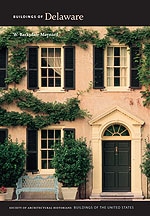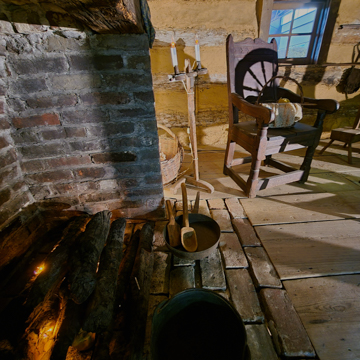The nonprofit museum includes a “village” of farm and rural buildings brought in from elsewhere, including a log corncrib (c. 1825), blacksmith's shop (c. 1850), schoolhouse (c. 1850), railroad station (c. 1864), and fully stocked general store (c. 1873). St. Thomas Methodist Church (1857, later altered), from Shortly, Sussex County, was moved here in 1994. It features original pews, chairs, pulpit, altar table, and cast-iron stoves, the latter made in 1878. A mill was built from scratch on the village grounds, incorporating milling equipment of 1862. Carney Farm (1893) gives a good idea of old-fashioned rural living. Fully one-quarter of the house was devoted to the parlor, a mark of status, and ample porches offered space for work and relaxation. The outdoor or summer kitchen is a late survival of this type of feature. Given that Delaware loses 10,000 acres of farmland every year, this museum may be as close as tomorrow's schoolchildren get to experiencing farm life.
You are here
Delaware Agricultural Museum and Village
If SAH Archipedia has been useful to you, please consider supporting it.
SAH Archipedia tells the story of the United States through its buildings, landscapes, and cities. This freely available resource empowers the public with authoritative knowledge that deepens their understanding and appreciation of the built environment. But the Society of Architectural Historians, which created SAH Archipedia with University of Virginia Press, needs your support to maintain the high-caliber research, writing, photography, cartography, editing, design, and programming that make SAH Archipedia a trusted online resource available to all who value the history of place, heritage tourism, and learning.















